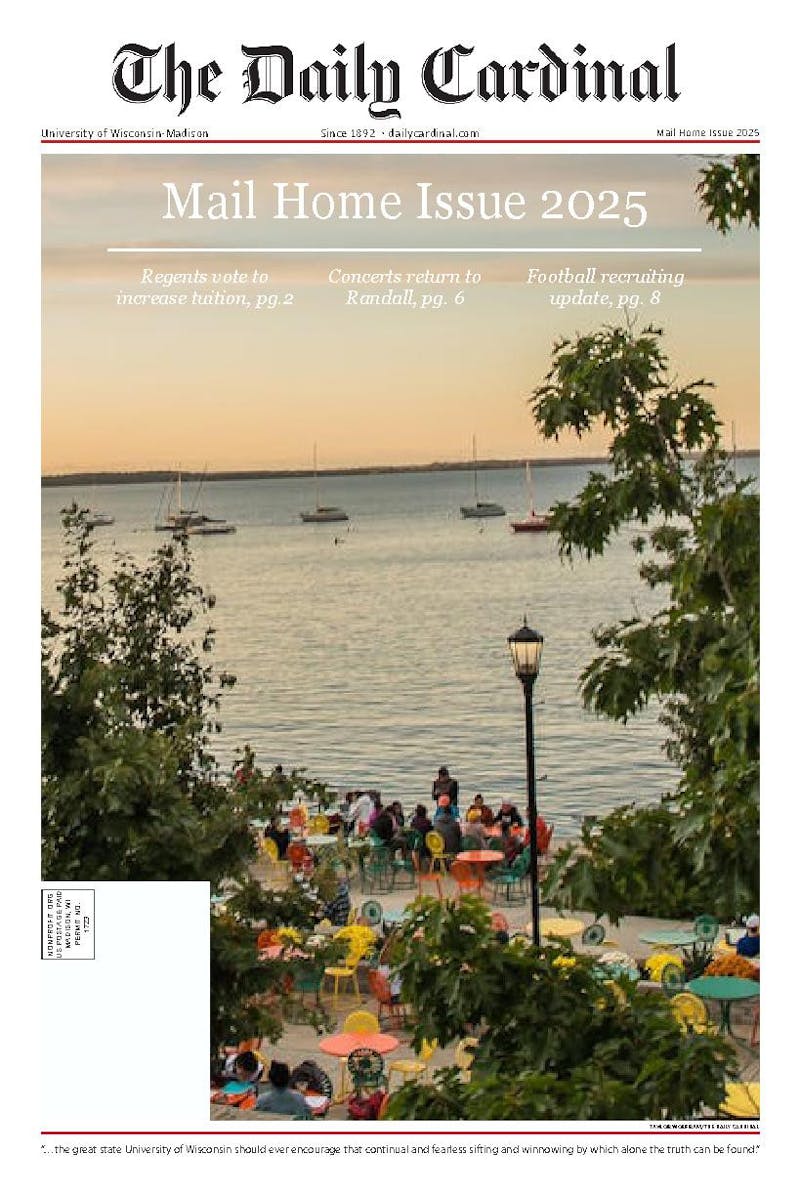Wisconsin Public Radio (WPR) announced plans in late June to cancel “University of the Air” along with three other legacy shows in part because of federal and state funding challenges.
Nationally, the Trump administration and congressional Republicans have sought to decrease funding for public radio across the country, most successfully with the passing of the Big Beautiful Bill earlier in June. The bill canceled $1.1 billion for the Corporation for Public Broadcasting (CPB), which upholds legacy media organizations such as PBS and NPR. More than two-thirds of that funding is distributed to 1,500 locally operated public television and radio stations such as WPR, according to PBS News. During the FY 2023, WPR received 24% of their funding from state sources, and 4% directly from the CPB.
“I'm appalled when I read about federal cuts to NPR or to public broadcasting,” University of Wisconsin-Madison English professor, and co-host of “University of the Air” Emily Auerbach said. Auerbach has hosted “University of the Air” for 30 years alongside WPR host and producer Norman Gilliland, interviewing campus experts on a wide range of topics spanning music, medicine, education and more.
“That sort of attack on the value of public broadcasting, whether it's public TV or public radio, that disturbs me because it is one of the true sources of journalistic integrity, and it’s very democratic with a small D: It is broadcasting that it's available to all and goes after the truth,” Auerbach said.
The origins of “University of the Air,” Auerbach said, are directly tied to the Wisconsin Idea the university was founded on.
“I think the title ‘University of the Air’ kind of speaks to the importance of the university reaching beyond its boundaries,” Auerbach said. “That was part of the initial concept of UW and what better way to make the university available to a whole state than have it able to tune in and hear programs on a variety of topics.”
Auerbach and Gilliland took the show, which had previously only recorded lectures and broadcast them across the state, to a question-and-answer interview format, where they explore a professor or experts niche interest for a one-hour, one-take interview.
“It's a great treat to be in the front row seat on a one on one interview with people who know a lot,” Gilliland told The Daily Cardinal. He noted the significance of the show for him lay in the extended length of the interview, where he, Auerbach and the listener could spend time and connect with an expert. Gilliland said some “University of the Air” guests, like historian Stephen Ambrose and former U.S. Senator Herb Kohl from Wisconsin, told him they had never done such a lengthy interview before.
Both Auerbach and Gilliland noted the importance of “University of the Air” for both themselves and their listeners in learning about a new topic from an expert in that field.
“One of the things I always like to ask the faculty member that I'm interviewing is why did you choose that field? What in your own background in life led you to study [that subject]? How did you wind up doing that and what do you love about it?” Auerbach said. “I think the program has been just a chance for anyone to learn something they might not have known and think about topics in a new way.”
Auerbach also emphasized the importance of the show in sharing the diverse range of research existing on UW-Madison’s campus. She said she’s heard from listeners who look at other people differently after listening, or get screened for a medical issue that the show investigates or even read a book to learn about a topic further.
“I think lifelong learning is always something of value,” Auerbach said.
“University of the Air” will air their last show in late September, but will continue recording new episodes throughout the summer. Auerbach hoped to dedicate a show in September to revisiting the history of their storied program, exploring some of the notable moments throughout their 30 years on the air and sampling some of the legendary interviews they’ve had over the years.
Although “University of the Air” will be taken off the air, Auerbach said she thinks WPR could possibly revitalize it in the future with younger hosts or students, if budgets permit. Other canceled WPR shows include “To The Best Of Our Knowledge,” “Zorba Paster On Your Health” and “BETA.” During these show cuts, WPR laid off 15 staff members.
“I think there are many ways to keep the idea of ‘University of the Air’ alive, and I hope they revisit the show when the budget permits, because it is a show that has a very long history, and I think the relationship between WPR and the UW is epitomized with that show,” Auerbach said.
Interested listeners can tune in to hear the final “University of the Air” episodes when they run on WPR from 5-6 p.m. on Sundays. The WPR “University of the Air” archive also contains around 950 of Gilliland and Auerbach’s interviews and episodes over the past 20 years.
John Ernst is the features editor for The Daily Cardinal. He has written in-depth on refugee resettlement, Milwaukee Public Schools and rural issues, including water contamination and immigrant farming. He also reported for the campus news, science and sports desks.






